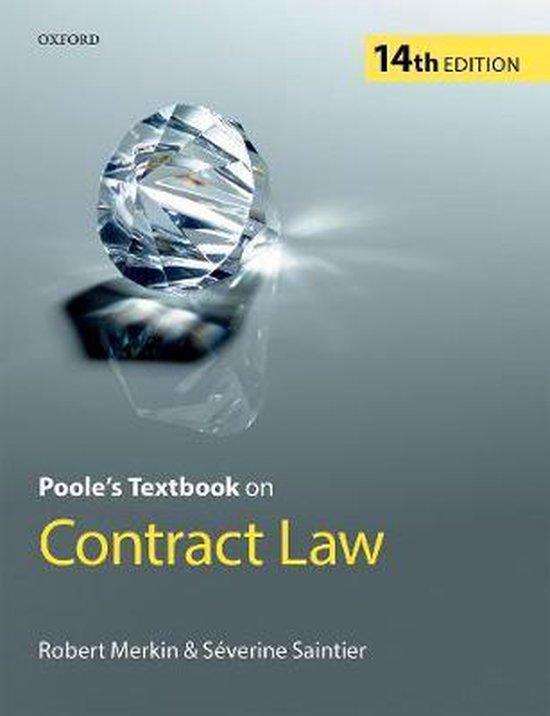Preview 8 out of 35 Flashcards
Schuler v Wickman [1974]
Schuler v Wickman [1974]
- An agent was expect to visit customers at regular intervals. The clause had been labelled a 'condition' and it turned out to be particularly onerous and in some cases unworkable
- Issue was whether the fact that a term of the contract was called a "condition" was conclusive, and whether it could be anything else upon a full reading and interpretation of the contract
- Court held that the clause was a warranty and not a condition and that simply calling a term a condition did not necessarily make it so
- If the contract as construed applying ordinary language and rules of syntax, would lead to an unreasonable result, the assumption had to be that the parties could not have intended it
- House of Lords did not believe that the parties could have intended that a single failure to make one of the visits should entitle the other party to bring this long-term distribution contract to an end
- Therefore, Schuler was not entitled to terminate the contract without giving notice and allowing Wickman to remedy the situation.
Wood v Capita Insurance Services Ltd & Sureterm Direct Ltd[2017]
Wood v Capita Insurance Services Ltd & Sureterm Direct Ltd[2017]
- SC required to interpret an indemnity clause for the sale and purchase of shares in a specialist insurance broking company
- Clause covered all actions brought against them only if such losses were sustained 'following and arising out of claims or complains registered with the FSA' or other regulators
- Concerns by employees about company's sale process led to an internal review that revealed phone operators had misled customers
- Company self-reported and Capita attempted to rely on the indemnity clause to recup their losses
- Court of appeal overturned the High Court decision stating that it did not cover Capita's losses since they were not incurred following 'claims or complaints registered with the FSA' since the company had referred itself
- Lord Hodge, on behalf of the SC, upheld the decision despite the buyer's main argument that CofA paid too much attention to the words of the document
- Argued textualism and contextualism are not 'conflicting paradigms' but are 'tools to ascertain the objective meaning on the language which the parties have chosen to express their agreement' (Lord Hodge)
2) The 'business efficacy' test
2) The 'business efficacy' test
- Courts can apply a term with the objective of giving the transaction efficacy when it has been objectively judge that both parties intended that it should have
Braganza v BP Shipping and another [2015]
Braganza v BP Shipping and another [2015]
- Mr Braganza was employed as chief engineer on a vessel.
Clause 7.6.3 read: 'For avoidance of doubt compensation for death, accidental injury or illness shall not be payable if, in the opinion of the company or its insurers, the death [...] resulted from [...] the officer's wilful act...'
- When Mr Braganza went missing the company concluded that he had most likely committed suicide.
- Lady Hale for the majority stated: 'the court will only imply a term that the decision-making process be lawful and rational in the public law sense that the decision is made rationally (as well as in good faith) and consistently with its contractual purpose'
- Control on decision-making process is made up of 2 limbs First limb the court has to check whether the person taking the decision considered everything that was relevant and did not base the decision on some irrelevant facts Second limb asks whether the decision, although procedurally correct, was 'so outrageous that no reasonable decision-make would have made it'
- Ladyship concluded that the employer's decision that Mrs Braganza was not entitled to the death in service payment was invalid as BP was wrong to simply accept suicide was cause of death and that on the second limb the decision was unreasonable
Arcos Ltd v EA Ronaasen Son [1933] AC 470
Arcos Ltd v EA Ronaasen Son [1933] AC 470
- The buyer was allowed to reject barrel staves which were just one 16th of an inch out.
MT Hojgaard v EON [2017]
s.14 SGA 1979
MT Hojgaard v EON [2017]
s.14 SGA 1979
- The contract specified that the platform for a wind park had to be built according to certain specifications and that it was to last for 20 years. Although it was built to the exact specifications (or possibly because of) it could not last for the amount of time.
- Supreme Court upheld the high court's decision that Hojgaard was liable to satisfy the fitness for purpose obligation in relation to the service life of the foundations
- Court of appeal disagreed with this decision
Supply of Goods and Services Act (SGSA) 1982
Supply of Goods and Services Act (SGSA) 1982
- Section 12 - Contracts concerned
- Section 13 - Supply of service with reasonable care and skill
- Section 14 - Time of performance
- Section 15 - Consideration
Oscar Chess Ltd v Williams [1957]
Oscar Chess Ltd v Williams [1957]
- A private seller told a dealer that he wanted to sell his car.
- He represented that it was a 1948 Morris based on the log book.
- It later turned out that it was 1939 model and that the log-book (unknown to both parties) was a forgery.
- Dealer would have been unlikely to buy car if he had this knowledge
- Court decided that that was not sufficient to form a term of the contract




